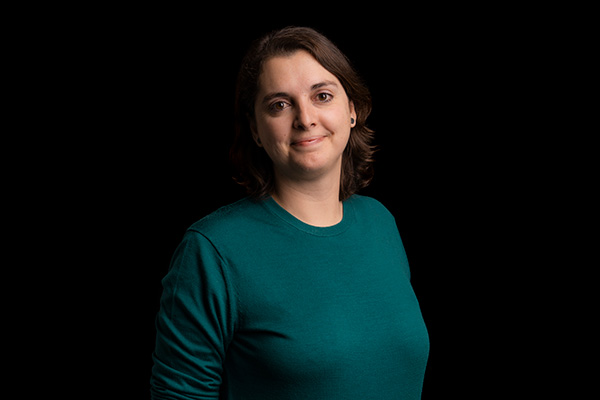Marta Victoria
Research leader

Project title
Highly renewable energy systems under extreme weather events
What is your project about?
Our future energy systems will be based on solar cells and wind turbines. This will make them more sustainable but also more sensitive to extreme weather events. What are the events that make it difficult for the energy system? How long is the worst period with low wind or solar generation that we can expect? How many times in a year will this happen? How will climate change impact those extreme events? In the EXTREMES project, we will investigate the answers to these questions. Our main goal is to describe these extreme periods using statistics and to design strategies to make sure that the energy system is reliable even under extreme weather conditions.
How did you become interested in your particular field of research?
For my BSc final project, I developed an energy model to optimize a renewable off-grid system for a small rural health centre. This sparked my curiosity on how would be to do such analysis for a larger system, that is, trying to design a renewable energy system for a country or even for a whole continent. I like energy system modelling because I found it fascinating to think about systems, trying to understand how the different technologies fit together, and how to connect the different pieces of the puzzle. System modelling requires combining very different knowledge domains, from meteorology to economy, from power flows to complex networks, and from climate science to environmental policy. I love learning about different subjects and combining that knowledge.
What are the scientific challenges and perspectives in your project?
In the EXTREMES project, we want to describe statistically extreme events that challenge the energy systems because there is a high imbalance between renewable energy and demand. One of the big challenges is that these episodes have a temporal dimension (how long do they last?) and a spatial dimension (do they affect one country or many of them simultaneously?). This entails certain complexity that makes it difficult to analyse them. Moreover, when modelling the impact of climate change on the energy system, we will use different climate models and we still need to learn if their resolution and inter-model consistency are good enough to enable us to obtain robust conclusions.
What is your estimate of the impact, which your project may have to society in the long term?
The EXTREMES project aims at establishing a fundamental understanding of extreme events challenging energy systems. This will enable us to design them better, avoiding dangerous situations and potential blackouts. This understanding will also be key to determining which backup (e.g. gas reserve) we need to keep to ensure energy supply for such extreme events while avoiding the prohibitive cost of overbuilding our future energy infrastructure. By reducing the risk associated with highly renewable energy systems, we expect to contribute to their development and attain timely decarbonization.
Which impact do you expect the Sapere Aude programme will have on your career as a researcher?
The EXTREMES project focuses on a topic that I’m passionate about. I think this can open the door to many other exciting research questions. In the long term, I would like to contribute with a whole theoretical framework of how to design climate change-resiling energy infrastructure and this project is the stepping-stone to get there. The Sapere Aude will also help me to mature my young research group at Aarhus University.
Background and personal life
The day I went to the Sapere Aude interview, my daughter was exactly 1 month old. I was born under a CO2 atmospheric concentration of 344 ppm. When she was born in October 2022, this has already risen to 416 ppm. I hope we manage to attain carbon-neutral systems by mid-century. Having a daughter, decarbonization by 2050 is now a much more meaningful date for me. I hope my research, and in particular the EXTREMES project, contribute to that objective.
View all research leaders here
Research institution
Aarhus University
Research field
Energy Systems Modelling
City of your current residence
Aarhus
High school
San Buenaventura, Murcia, Spain
